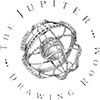#CannesLions2018: A view on the agility and innovation of independent agencies

 Tell me about thenetworkone and exactly what you do?
Tell me about thenetworkone and exactly what you do?
Well, we set up thenetworkone 15 years ago to help marketing clients find the best independent agencies for their particular needs, and help independent agencies find partners in other countries that they can collaborate with to work internationally with clients.
 And what services do you provide to these independent agencies who don’t have the benefit of having a network behind them?
And what services do you provide to these independent agencies who don’t have the benefit of having a network behind them?
Well, first and foremost, with us they do have a network. So it is a network on demand. It’s a flexible network, which means that it is configured according to what the agency needs ‒ what skills they need; what experience they need those agencies to have. They need them to be conflict-free; they need them to be in the right place, and they need them to have a personality fit. So it is a customised network for any agency or any client.
 And there are no central charges that they have to pay?
And there are no central charges that they have to pay?
No, they don’t have to pay, like you don’t have to pay a particular holding company a percentage on your entire business. If we introduce business to them, we charge them a referral fee for that particular account, and if they use our help to find partners and build networks for themselves, we ask them to become a member and they pay a set membership fee.
 I have heard a lot about the Indie Summit, tell me a bit more about that.
I have heard a lot about the Indie Summit, tell me a bit more about that.
Well, the Indie Summit is a more recent development. We realised after a while that what has started out as a network of about 120 agencies had become a network of over two thousand. And so we realised that it gave us a scale where we could do things that didn’t really make sense before.
So three years ago we started doing the Indie Summit and we now have about 200 or 250 owners or heads of independent agencies come together. We provide a speaker programme; networking opportunities, social activities as well. But primarily they are there to learn and to share because the thing about being independent is ‒ they are great fun, they are great socialisers, and it’s their money, and they want to get value out of something.
 What do you think the benefits for a marketer are with going with an independent agency?
What do you think the benefits for a marketer are with going with an independent agency?
I think if you look at the credentials of any independent agency, you will see these themes that will recur: the agencies are more agile, they are more cost efficient ‒ not necessarily cheaper but they are more cost-efficient, they are more innovative, they are more flexible, they are more open to new ideas. And that is partly a scale thing, if you are smaller you are more agile.
 And the owners are also involved in the business.
And the owners are also involved in the business.
Yeah, I think this is a cultural thing. You are not planning your next move to San Francisco or Kuala Lumpur – you are going to stick around. If you are the owner of the agency, the owner sets the culture and drives the culture of the agency, and those people stay. They are there for the long term.
 So, Julian, what do you think the future of the independent agencies are?
So, Julian, what do you think the future of the independent agencies are?
I think that is a really interesting question. Traditionally, independents competed with the holding companies, WPP, Omnicom, Publicis and their agencies. Today, there is a whole new set of competitors: Accenture, Deloitte, IBM, the consulting companies, and we kind of see the problem is more for the holding companies and their agencies. They, if you like, are the squeezed middle. They are competing with IBM and Accenture, Google and Facebook, but they have less resource and in many ways, less contemporary scale.
The independents won’t compete with those, they don’t have that resource. The independents offer something that is quite different and much more easy to combine with a data-rich company like Accenture and IBM. So, I foresee the big change in the industry will be a squeeze on the big holdings, a growth of the consulting companies, the big platforms, and the independents being, if you like, the gadfly stinging people. The innovative, the creative people, the people who come up with the ideas that are politically unacceptable, but make the difference in life are the ones that really change the world.















